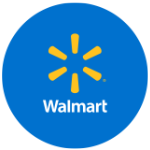Choosing the Right Web3 Framework for Your Decentralized Applications (dApps)
Introduction
In the world of decentralized applications (dApps), selecting the right web3 framework is crucial for developers to create powerful and efficient applications that leverage blockchain technology. With various options available, it’s essential to understand the features, capabilities, and ecosystem support of different web3 frameworks.
1. Ethereum
Ethereum is one of the most widely adopted web3 frameworks, providing a robust infrastructure for building dApps. It offers a Turing-complete programming language called Solidity, which enables developers to create smart contracts and decentralized applications. Ethereum’s extensive ecosystem, community support, and established standards make it a go-to choice for many developers.
2. Polkadot
Polkadot is a versatile web3 framework that focuses on interoperability and scalability. It allows developers to create and connect multiple blockchains, known as parachains, enabling cross-chain communication and the seamless transfer of assets. With its flexible architecture, Polkadot provides developers with the tools to build complex, interconnected dApps.
3. Solana
Solana is a high-performance web3 framework designed for speed and scalability. It utilizes a unique consensus algorithm called Proof of History (PoH) to achieve fast transaction processing and low fees. Solana’s efficient infrastructure makes it suitable for applications requiring high throughput and real-time interactions, such as decentralized exchanges and gaming platforms.
4. Other Frameworks
While Ethereum, Polkadot, and Solana are popular choices, there are several other web3 frameworks worth exploring:
- NEAR Protocol: Offers developer-friendly tools and scalability features for building dApps.
- Tezos: Focuses on formal verification and on-chain governance, providing a secure and upgradable framework for dApps.
- EOSIO: Provides high-performance infrastructure with a user-friendly development environment for creating scalable dApps.
Conclusion
Choosing the right web3 framework is a critical decision for developers venturing into decentralized application development. Each framework has its unique strengths and focuses, catering to different use cases and development preferences. By understanding the features, capabilities, and ecosystem support of various web3 frameworks like Ethereum, Polkadot, and Solana, developers can make informed decisions and leverage the right tools to build powerful and innovative dApps.
For more information and to explore these web3 frameworks, consider visiting the following platforms:



















